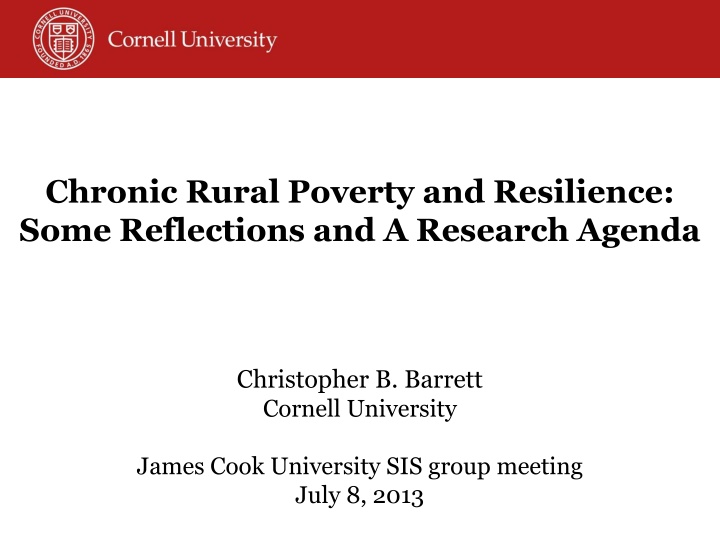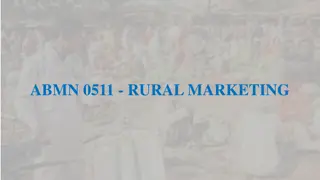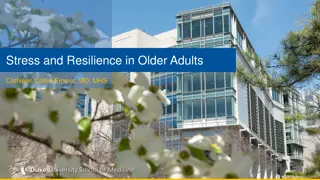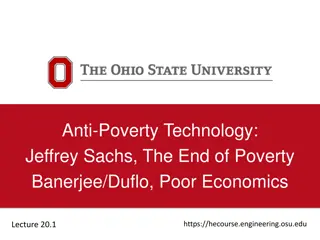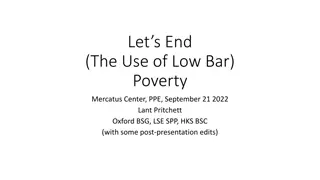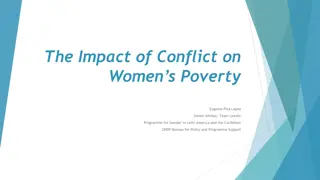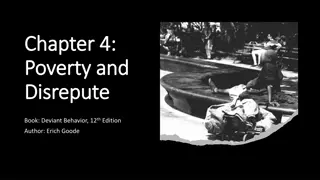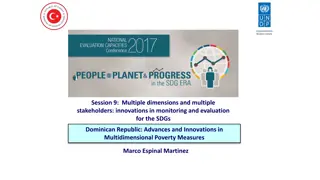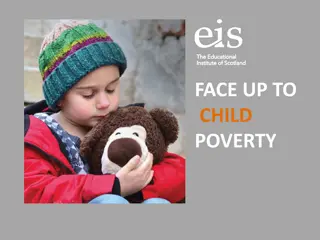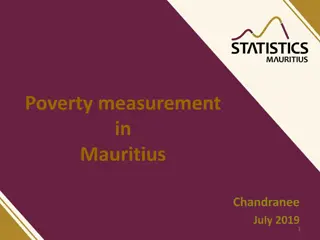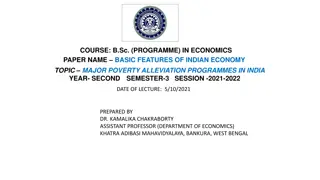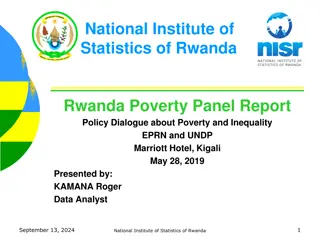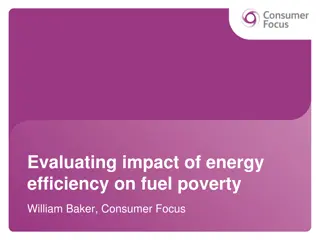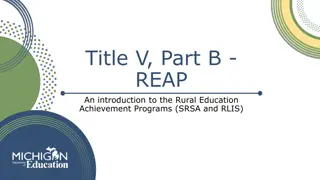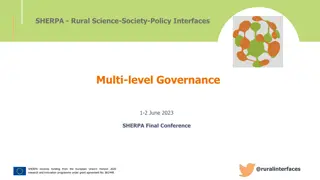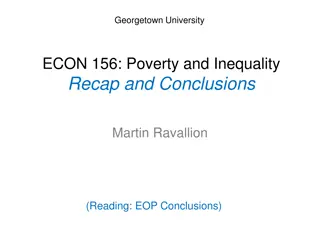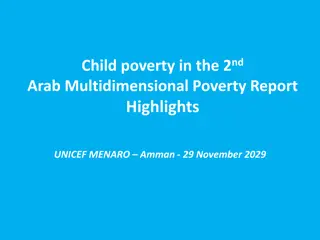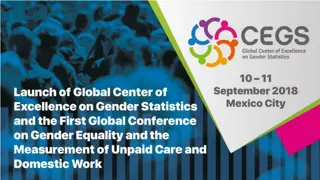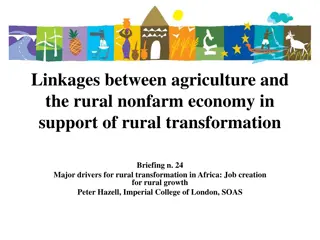Chronic Rural Poverty and Resilience: Some Reflections and A Research Agenda
Chronic rural poverty and resilience are examined in relation to human-threatened ecosystems, welfare dynamics, and research agendas to positively influence livelihood strategies. Research priorities include understanding the conditional transitions between welfare and the state of natural resources.
Download Presentation

Please find below an Image/Link to download the presentation.
The content on the website is provided AS IS for your information and personal use only. It may not be sold, licensed, or shared on other websites without obtaining consent from the author.If you encounter any issues during the download, it is possible that the publisher has removed the file from their server.
You are allowed to download the files provided on this website for personal or commercial use, subject to the condition that they are used lawfully. All files are the property of their respective owners.
The content on the website is provided AS IS for your information and personal use only. It may not be sold, licensed, or shared on other websites without obtaining consent from the author.
E N D
Presentation Transcript
Chronic Rural Poverty and Resilience: Some Reflections and A Research Agenda Christopher B. Barrett Cornell University James Cook University SIS group meeting July 8, 2013
Motivation Keen to explore how best to understand and positively influence the closely coupled dynamics of human-threatened ecosystems that are closely couple with human well-being and livelihood strategies, especially as they relate to persistent poverty and malnutrition.
Background My research group based in (development/agricultural) economics w/past and ongoing work on coupled natural and human (CNH) systems, as well as broader work on poverty dynamics, food security, productivity and markets not directly related to environmental stress. Emphasis on theoretically-grounded empirical work that can inform policymakers/practitioners.
Background Sample work on CNH systems (current in bold): (1) Sustainable agricultural intensification (soil nutrients, water mgmt Cote d Ivoire, Ethiopia, Ghana, India, Kenya, Madagascar, Malawi, Uganda, pan-SSA) (2) Rangelands in east Africa (Ethiopia, Kenya) (3) Biodiversity conservation & poverty (2011 PNAS, Cameroon, Kenya, Madagascar, Tanzania, Thailand) (4) Deforestation (Indonesia, Madagascar, Morocco) (5) Marine protected areas (Indonesia, Philippines) (6) Disease ecology (applied theory, Uganda)
Research priorities What we understand least well: - Welfare dynamics and their relationship to ecosystem dynamics, especially with stochasticity added in Shocks that disrupt lives and livelihoods - the most frequent cause of descents into poverty. Uninsured risk of catastrophic loss - discourage pursuit of high return/riskier livelihoods a key reason for poverty traps.
Research priorities Put slightly more formally, seek to learn conditional transitions: Wt+1=g(Wt|Rt, t) where W is welfare, R is the state of the natural resource, and is an exogenous stochastic driver And associated feedback from: Rt+1=h(Rt|Wt, t) And effects of exogenous change in (e.g., due to climate) means the underlying CTD changes over time. Both human well-being and the state of natural resources are both intrinsically and instrumentally important.
Research priorities One specific case: current dev t /humanitarian communities fascination with resilience But we lack a theory-measurement-and-evidence-based understanding of what resilience is with respect to poverty and hunger, how to measure it, and how to effectively promote it so as to reduce chronic poverty and hunger. Working with CARE, FAO, ILRI and others on improving conceptualization/measurement A big opportunity for ecologist economist collaboration!
Four-pronged strategy Four-pronged research strategy Theory Build on past work on ecological resilience and poverty traps and its relation to risk. Measurement This is the hardest area. What are the right dimensions/methods for measurement? Combine probabilistic quantitative measures and subjective indicators. Impact evaluation Once metrics established, then use longitudinal observational and experimental data to evaluate alternative interventions aimed at enhancing resilience of indivs, hhs, communities (and supporting ecosystems). Outreach Translate findings into clear, actionable guidance to donors, firms, gov ts and NGOs.
Ways Forward Lots of potential for collaboration around any of several topics, especially related to CNH systems, poverty traps and resilience. Much to do in all of these areas a massive research, teaching and outreach agenda. Our group s work is almost entirely in terrestrial systems, however. Very little experience in marine systems. So look forward to further learning from JCU/CoE for CRS
Thank you Thank you for your time, interest and comments!
